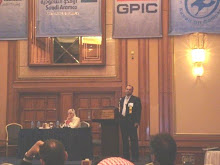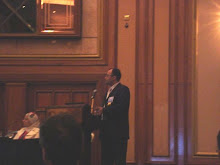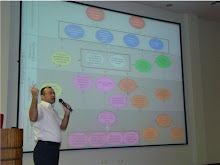Dissimilarity is the degree to which individual attributes are/aren’t shared by other team members (Jackson, Stone & Alvarez, 1992). Recent studies examined its effect from different aspects (Pelled et al, 2001; Pelled et al., 1999; Jehn et al., 1997).
Consider Informational, Visible and Value dissimilarities specifically (Harrison et al., 1998; Pelled et al., 1999); Where informational dissimilarity relates to differences in occupancy, profession and working experience and visible dissimilarity refers to being different in a ‘visible’ way like age, skin color and ethnicity whereas value dissimilarity corresponds to distinction in ethics, approaches, methodologies of performing activities.
Elizabeth Hobman (et al,2003) state that perceived dissimilarity results in conflicts associated with the individual’s level of participation in team work. Perception of dissimilarity should be taken into account when managing projects. Value dissimilarity induces beneficial task conflicts but has negative impact on relationships among team members. This impact can be downsized by aligning members to ‘Goals’ while keeping the approach ‘loose’ (Schneider et al, 1999); and by educating teams on importance of commitment to ‘team unity’ (Gelfand et al, 1996). Teams should also be open to diversity so as to motivate dissimilar members’ involvement and explore new approaches even playing the devil’s advocate (Turner et al, 1994). Organizations have a stake here, where processes, procedures and regulations should emphasize on ‘equality’ and team evaluation should be based on achievements.
The case I experienced was an example of how information and value dissimilarities influence team performance। If the committee had the chance to continue with the diversified approaches, the outcome would have been enhanced.
Regards,
Samer
Note: References included in the posting comment
About The Author

- Eng. Samer el Barakeh, MPM, PMP
- Samer el Barakeh was born in Lebanon, 1973. He completed his Bachelor in Engineering-CCE at Beirut Arab University-Lebanon in 1996 with honours. Samer was granted Masters Degree in Project Management (MPM) from the University of Sydney-Australia with honours. He also gained the Project Management Professional (PMP) Credential from The Project Management Institute (PMI). Samer is a member of the Order of Architects and Engineers in Lebanon since 1996, The Project Management Institute (PMI), Arabian Gulf Chapter (AGC-PMI) and Lebanon Chapter-PMI. During his 13 years of professional experience in Lebanon, Australia and Saudi Arabia, Samer held many positions among them: Telecommunication Site Engineer, Site Manager, Low Current Service Head, and he is currently Senior Systems Analyst at the General Project Construction Division. Samer is a Project Management Consultant and Training Provider for universal organizations like Business Management Consultants (USA) www.bmc-online.com and PMCTQuest (Canada) www.pmctquest.com Samer is a Registered Training Provider for Project Management Professional (PMP), and he provides training in Program Management, Portfolio Management,PMO...
Select a topic to view content
- A comparison between PMBOK and Prince2 Methodologies and reflection on case study examples (1)
- ABC to Avoid Project Failure (1)
- Business Case and Quantitative Benefits (1)
- Do we need more 'Planners' ? (1)
- Fasilitator in Partnering-A Coincise Shot (1)
- How to Ensure Stratgic Alignment of Our Projects? (1)
- Individual Dissimilarity and Team Work (1)
- Knowledge Management (1)
- Maturity Models-The Pros and Cons (1)
- Organizational Advantages from Partnering (1)
- Organizational Maturity: Lets Head Upwards... (1)
- Organizational Strategy and Project Alignement (1)
- Practical Solutions 1 of 6: Introduce RMMM (1)
- Practical Solutions 2 of 6: Facilitate Change to Perk up Maturity (1)
- Practical Solutions 3 of 6: Leverage Organisational Culture Barrier (1)
- Practical Solutions 4 of 6: Organisational Cultural Alignment (1)
- Practical Solutions 5 of 6: Defining a Unified Decision Making Tool (1)
- Practical Solutions 6 of 6: Understanding The Paradox of Control (1)
- Programme Management to Implement Strategy (1)
- Project Management and Construction Management (1)
- Project Managers relocated before Proper Project Closure and Learning Lessons (1)
- Project Managers' Power (1)
- Strategic Planning (1)
- Successful Project Management Office-PMO (1)
- System Thinking: Archetypes at Work... (1)
- The Partnering Change Process (1)
- The Upper Hand… Leadership skills or Processes? (1)
- Thinking about change needed? Maybe you should be more ‘worried’ about how to make it real (1)
- Vision Mission and Objectives What and Why? (1)
- What is meant by Portfolio and Programme Management (1)
- Why Partnering in Organizations? (1)
December 16, 2006
Individual Dissimilarity and Team Work
Posted by
Eng. Samer el Barakeh, MPM, PMP
at
6:56 PM
1 comments
![]()
![]()
January 1, 2006
Project and Programme Management Skills
Strategic Management
Involved in the analysis and development of the Strategic Plan. Work on strategies to achieve the Plan. Develop Programme and Project scoping statements designed to achieve strategies.
Financial Management
Adequate knowledge about development and make-up of the Business Case, and how benefits are defined, monitored and measured (Benefits Realization)
Know how to define a project budget and to monitor and report on that budget; familiar with standard financial modeling techniques and indicators, such as ROI, IRR and NPV.
Stakeholder Management
Produce a Stakeholder Management Plan and set up agreements with project service providers (internal), ensuring that all accountabilities are clearly understood and committed to.
Work closely with other managers in clearly understanding (and setting) expectations and in defining all key roles and responsibilities required for their delivery.
Business Management
Understand the organization’s processes, policies, management structures and culture. Appreciate how projects relate to organization drivers and strategies.
Have detailed knowledge of current organization plans and operations, with good experience in setting up and managing Project Office.
Able to plan and appreciate the complexity of major changes within the organization and the impact of projects at a strategic level.
Procurement Management
Understand contractual aspects in the bidding and tendering process. Able to undertake analysis associated with tenders, bids and procurement. Ensure the latter align with project resource baseline requirements.
Portfolio Management
Support Management in the development of the Project Portfolio. Advises senior management as to options in structuring the Portfolio, and its implications for organization’s strategies and plans.
Able to develop policies processes and procedures associated with Portfolio Management for the organization.
Programme Management
Able to identify and manage stakeholders in the programme. Understands and is able to manage the difference between the programme life cycle and the project lifecycles for the projects associated with the programme.
Integration Management
Effectively work with project stakeholders in creating an ‘end-to-end’ view of the project. Able to integrate the needs and dependencies of multiple projects. Implements an integrated change control process for the project.
Scope Management
Defines and manages all aspects of scope impacting on the project. Can implement a Project Control system for the purpose of managing scope. Familiar with Configuration Management systems and their integration with Scope Management.
Adept at managing all aspects of scope impacting a single project, and able to negotiate issues which affect project scope with stakeholders.
Time Management
Is familiar with advanced scheduling approaches. Able to integrate vendor schedules; develop control systems associated with time, cost and scope (such as earned value, SPI, CPI, milestone charts, etc.). Familiar with common scheduling tools and able to integrate tools for scheduling with other systems (such as time sheets or financial systems). Defines scheduling processes and can define a schedule review check-list for others to follow. Provides guidance to other project managers in how to develop, control and report on the project schedule.
Risk Management
Understand risk management and is aware of organizational policies and procedures in relation to risk. Can develop a Risk Management Plan (identifying, assessing and defining contingencies for risk), and manage the project in a ‘risk aware’ manner. Reviewing risk on a regular basis, ensuring identified risks stay under control, developing mitigation and contingency plans and ensuring those working on the project act to control risks.
Approach risk management from a strategic perspective and advise management on risk and its impact on delivering the organisation’s strategy. Able to develop project risk management policies for the organization
Communication Management
Define appropriate communication strategies (often in the form of a Communication Plan) both within the project (Project Intranet site), and between the project and its stakeholders. Ensure communication channels and strategies work effectively, by seeking feedback from those identified in the Communication Plan.
Advise on setting up project and programme communication channels across the organisation.
Quality Management
Understand the elements of quality and the relationship to the project. Manage all aspects of quality associated with the project – including management and project processes, as well as defining and meeting the quality requirements of the products to be delivered. Develops and manages a Quality Plan. Able to identify relevant standards (ISO, AS, IEEE) which apply to the project and its associated products.
Posted by
Eng. Samer el Barakeh, MPM, PMP
at
11:16 PM
![]()
![]()
Leadership Skills
Issues Management
Effectively use an Issues Management system to control the speedy resolution of issues. Ensure an issues escalation process is in place, and all stakeholders understand their responsibilities in identifying and resolving issues.
Supports with putting in place project and programme Issues Management systems across the organisation.
People Management
Effectively manages people working on the project. Set up and control a Resource Plan, ensuring all those involved understand and agree to their responsibilities. Monitor individuals’ performance, conducting performance appraisals and coaching where required.
Able to define project roles and relate them to personal KPIs, corporate roles and structures, often on multiple and very large projects.
Conduct People Management at the programme level.
Achievement and drive: Vision, Goal focused, Energy and drive, Risk taking
Work to establish a culture of high achievement amongst peers and project members. Ensure at all times that key stakeholders understand and accept the vision for the project. Promote the ‘can do – will do’ attitude to projects, gaining support and respect from those involved.
Lead others in developing these qualities for themselves.
Work closely with senior management to ensure the overall vision of the programme is clearly understood, and articulated, to all involved with the programme.
Systems thinking, Creativity, Decision making, Strategic Thinking
Can think clearly, creatively and logically in all aspects of managing the project. In creating buy-in to the project by ensuring good decision making process is made. Can think holistically, as well at a detail level. Balance the application of qualitative and quantitative methods thus removing ‘opinion-based decision making’ with ‘measurement-based decision making’.
Successful in running efficient meetings and refining and continually improving communication channels.
Awareness and influence: Organization and Business awareness, Cultural awareness, Anticipation of impact, Resourceful use of influence
Have a good understanding of how the organization works, who the influential people are and how politics operate. Anticipate situations and changes and take appropriate actions to minimize negative impacts on the project.
Use personal influence well, but also seeks the counsel of those with experience and wisdom.
Negotiation and conflict resolution
Recognize that efficient problem-solving is necessary for effective project execution. Adept at negotiating the right outcomes with project team members and stakeholders. Use good techniques in conflict resolution, working continually to ensure conflicts are resolved at the lowest level in the project.
Posted by
Eng. Samer el Barakeh, MPM, PMP
at
11:16 PM
![]()
![]()















